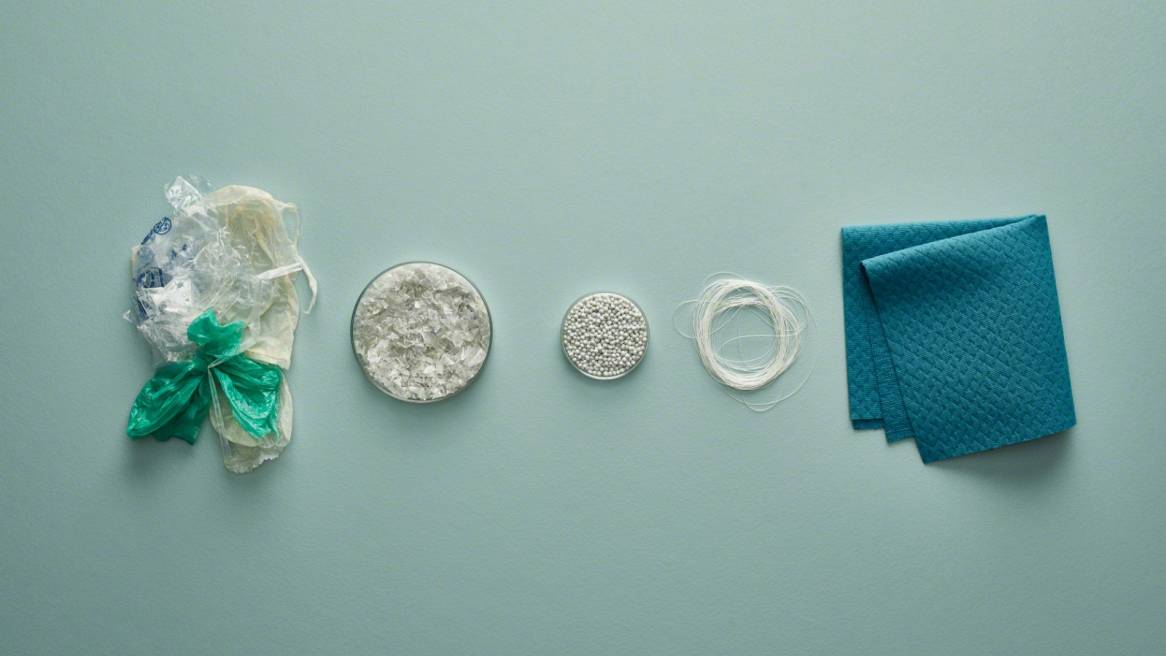From Ocean to Office
How a new Steelcase fabric is reinvigorating the office and the ocean
Every year, 12 million tons of plastic are dumped into our oceans. Much of that waste takes decades and even centuries to biodegrade*. Now, Intersection, a new and compelling screen and panel fabric made from Upcycled Marine Plastic has been developed by Steelcase, bringing new life to the office and removing ocean waste in the process.
Creating a Cleaner Ocean
On a search to think about materials in a new way, Steelcase reconnected with a familiar collaborator, Duvaltex. The companies were determined to create something fresh and exciting when they were introduced to SEAQUAL INITIATIVE, a collaborative community of individuals, organizations and companies working together to help clean our oceans, raise awareness of the issue of marine litter and highlight those helping to fight it. The community helps to clean our oceans by transforming marine litter into Upcycled Marine Plastic, a new fully traceable, sustainable raw material.
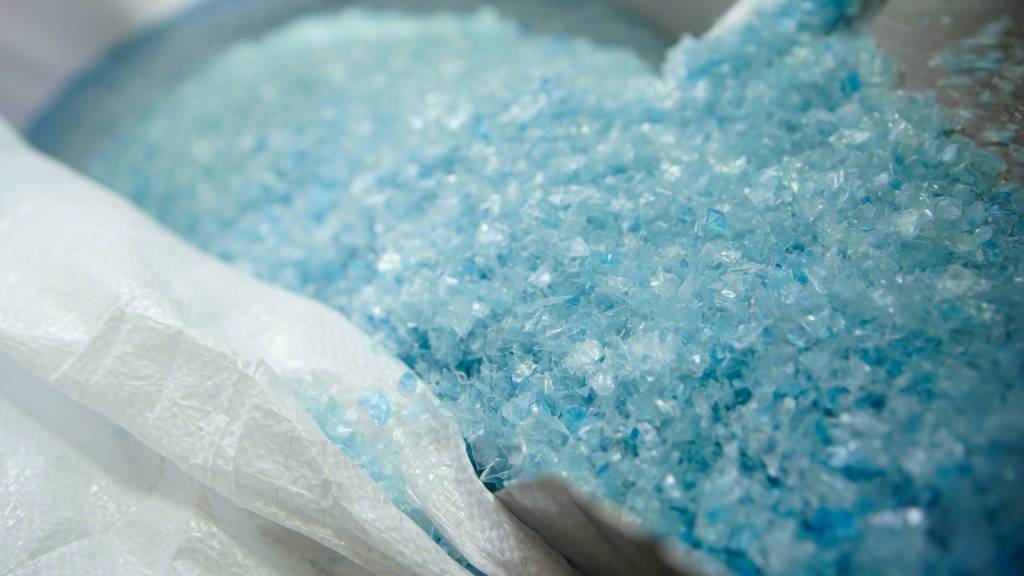
By collaborating with local European clean-up programs and fishermen to collect ocean waste, SEAQUAL INITIATIVE is doing its part to put a dent in the plastics problem. The plastic waste is cleaned and transformed into Upcycled Marine Plastic, which is then given a second life by various industries as beautiful, new sustainable products. Steelcase is collaborating with the team using SEAQUALⓇ YARN — containing Upcycled Marine Plastic — that is woven into the Intersection fabric. The impact is staggering: for every yard of Intersection, half a pound of plastic waste is removed from the ocean.
The impact is staggering: for every yard of Intersection, up to half a pound of plastic waste is removed from the ocean.
Partnering with Duvaltex and its CLEAN IMPACT TEXTILES™ technology, Steelcase was able to create a sustainable material that still maintained its visual appeal. “When Duvaltex came to us, they had this incredibly beautiful fabric that not only met all of our technical needs as it relates to application and screen design, but also had this incredibly important environmental story,” says Kari Miller, product manager for Global Surface Materials at Steelcase. “We’re constantly thinking about sustainability as a company and how to integrate it into material development. This initiative hit it straight on the head.”
The Path to Intersection
The journey from ocean to office begins with organized clean-ups and ends with a beautiful, sustainable fabric. Simplified, the process can be broken down into three steps:
Collect
Local European fishermen and other organized ocean clean-ups collect ocean waste and deliver it to SEAQUAL INITIATIVE approved facilities, where the plastic is separated from other material types.
Transform
Once sorted, the plastic portion is cleaned and transformed into Upcycled Marine Plastic at SEAQUAL INITIATIVE approved facilities. The metal, glass and other remaining waste is responsibly disposed of or recycled through traditional routes.
Create
The Upcycled Marine Plastic is then taken by organizations such as Steelcase and Duvaltex and returned to industry in various forms, including SEAQUALⓇ YARN, used in Intersection.
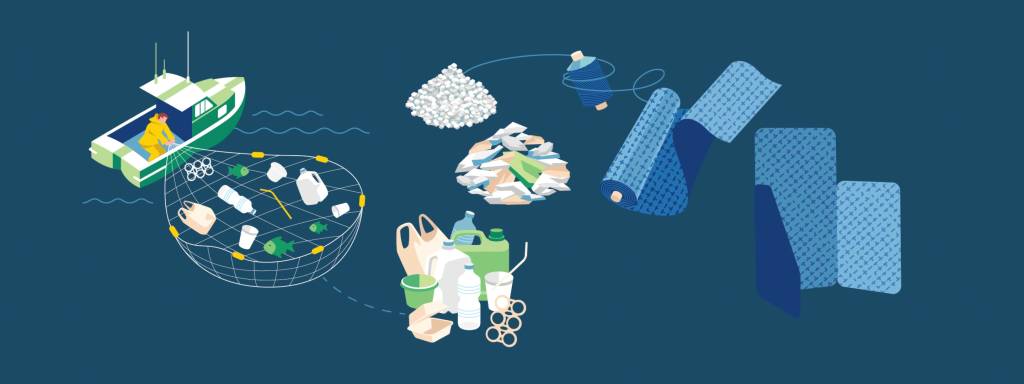
The Quest for Beauty
Beyond its positive environmental impact, Intersection also successfully met the need of organizations and designers for an updated, compelling screen and panel fabric. Today, screens have evolved to fill a more architectural and visual role in the workplace, contributing to the look and vibe of the office while still providing visual or acoustic barriers where needed.
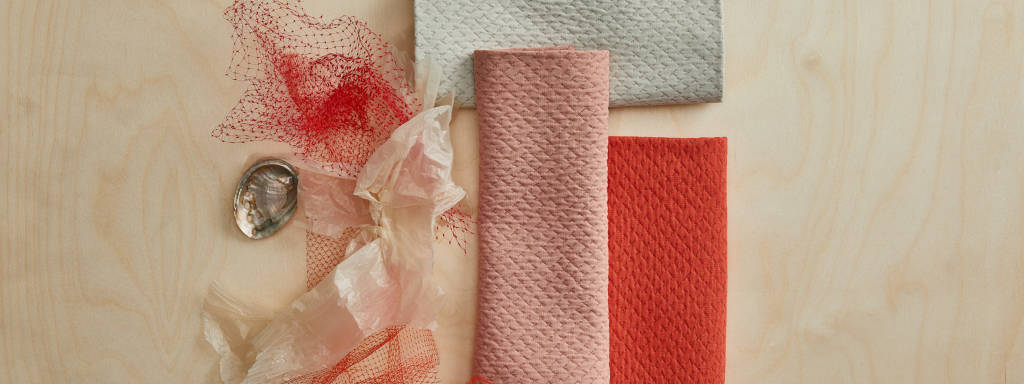
As companies bring employees back to the office during today’s global pandemic, they are retrofitting their spaces to accommodate new safety guidelines. “Our new reality is one that requires more screens, panels and partitions in the office to divide workspaces,” says Julie Yonehara, global material designer at Steelcase.
“The office is going to have to be less monolithic in a way, breaking up that large chunk of color and finding material that gives it more expression.”
Julie YoneharaGlobal Material Designer, Steelcase
Intersection is designed with a small crisscross pattern woven alongside a subtle pucker, providing a unique three-dimensional visual. Steelcase worked with Duvaltex to adjust the color offering as well, providing fresh and modern options that fit within contemporary color palettes.
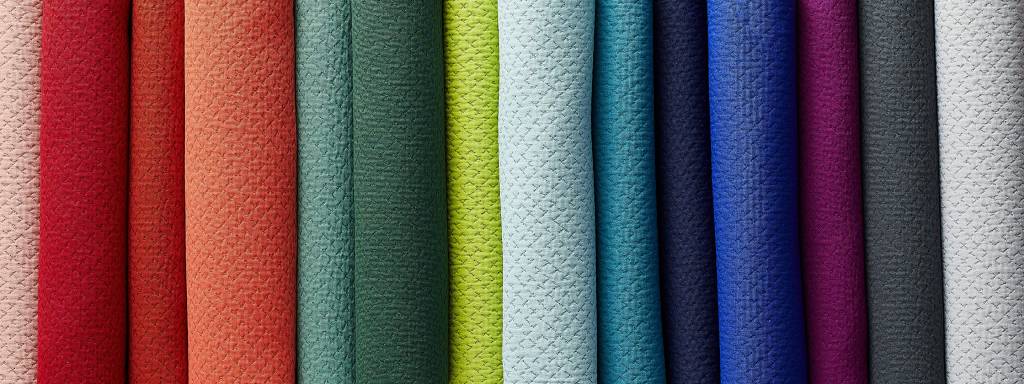
An Ongoing Commitment
Steelcase has long kept a strong commitment to sustainability and environmentally-conscious design as a company. For years, engineers and designers have developed innovative solutions to create more sustainable products, such as planked veneer and the New Black textile collection, created entirely from Steelcase scrap fabric. Sustainability efforts have been amplified by working with other like-minded organizations such as Duvaltex. Founded in 1947, Duvaltex’s first material offering was made with yarn recycled from old wool blankets. Since the partnership, Steelcase and Duvaltex have worked together on a series of projects, including the New Black textile collection, a Closed Loop program with Designtex in 2011, a Cradle to Cradle CertifiedTM product in 2005 and the first recyclable polyester for commercial interiors in 1995. Keeping the tradition, Steelcase continues to explore more eco-friendly solutions in future product development, including the possibility of utilizing SEAQUALⓇ YARN in other new materials.
Intersection is now available in North America and can be applied to a wide range of screens and panels, including VIA, Mackinac and Steelcase Flex. For product details or to order samples of Intersection, visit the Steelcase Finish Library.
* National Oceanic and Atmospheric Administration
To learn more about Steelcase’s recent commitment to a carbon negative future, read Carbon Neutral Now. Carbon Negative Next.

